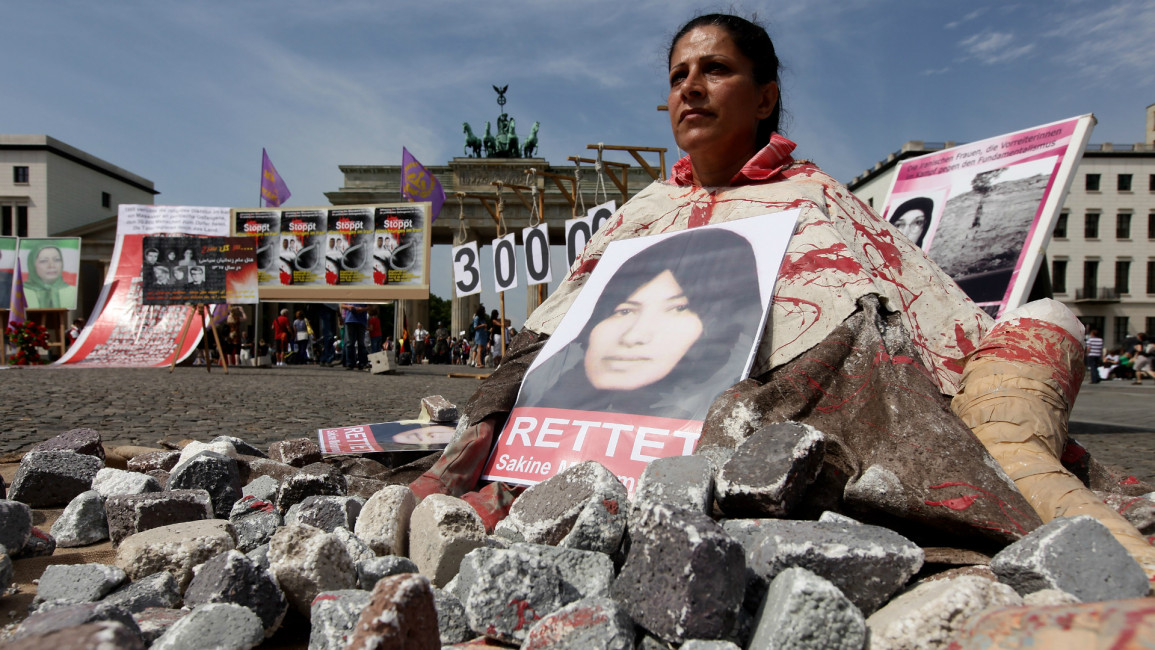Unpublished novel lands Iranian writer in jail
An Iranian writer has been sentenced to six years in one of the country's most notorious prisons for writing an unpublished story about stoning.
Golrokh Ebrahimi Iraee received a phone call from Iranian authorities on Tuesday ordering her to present herself to Evin prison to begin her sentence, according to Amnesty International.
Her husband Arash Sadeghi, a prominent student activist, is already serving a 19 year jail term.
Both were arrested in September 2014 when authorities raided Sadeghi's Tehran workplace and the couples' home seizing assets including laptops, notebooks, and CDs.
Authorities discovered Iraee's unpublished story which tells the tale of a young Iranian woman who becomes so enraged watching the film The Stoning of Saraya that she burns a copy of Quran.
Iraee's sentence is said to consist of five years for "insulting Islamic sanctities" and one year for "spreading propaganda against the system".
She was detained for 20 days following the 2014 raid without access to her family or a lawyer Amnesty International has reported.
During her detention she was blindfolded whiler her interrogators threatened her with the death penalty if she was found guilty of "insulting Islam".
Amnesty said that two different lawyers withdrew from representing the young writer after receiving threats from authorities.
Iraee was now allowed to speak in her defence during the trial.
The humanitarian watchdog has demanded Iraee's immediate release.
"We are urging the authorities to immediately quash Golrokh Ebrahimi Iraee's conviction and that of her husband Aresh Sadeghi, who has been behind bars since June for peacefully exercising his rights to freedom of expression and association. The Iranian government is on the verge of stamping out a whole generation of young activists with its ruthless and repressive tactics," said Philip Luther, a MENA focused researcher at Amnesty on Thursday.
"She is facing years behind bars simply for writing a story, and one which was not even published - she is effectively being punished for using her imagination."
Stoning to death has been used in Iran as a punishment for adultery. Although it is not believed to have been carried out for a number of years, it remains within the penal code.
Earlier this week a critical report by the UN's outgoing Secretary General Ban Ki-moon revealed that Iran continues to hand out stoning sentences.
At least one woman, Fariba Khalegi, is currently facing death by stoning.



